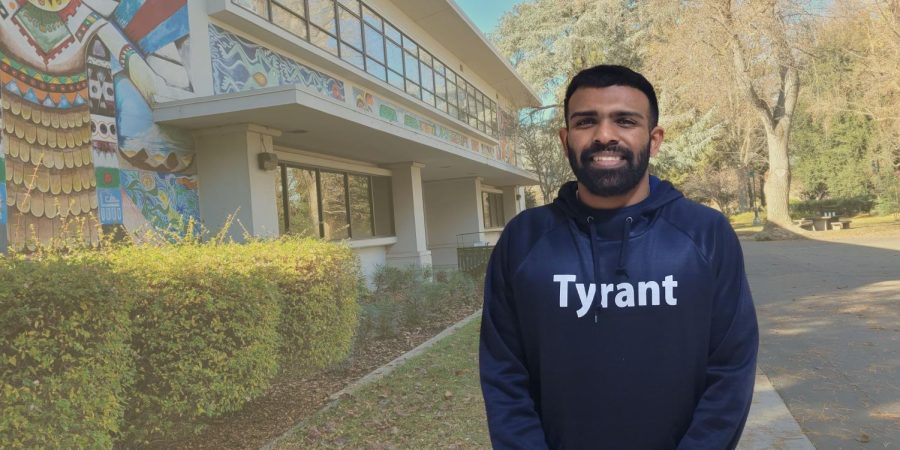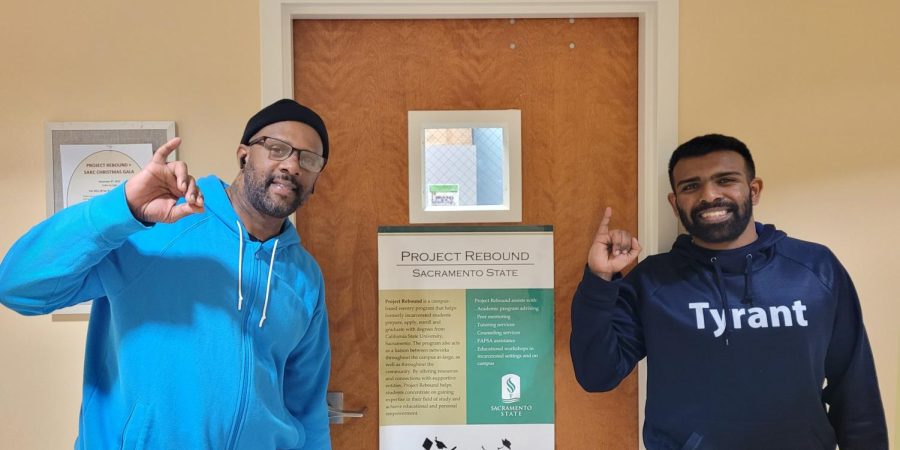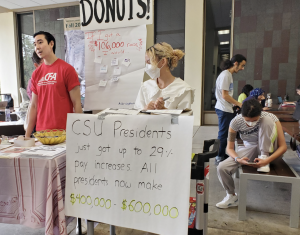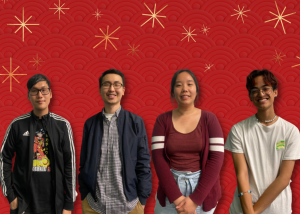Dismantling roadblocks: program provides second chance for previously incarcerated students
Project Rebound was established at Sac State in 2016
Derrold Barry, a first-year educational leadership and policy studies graduate student, and fifth-year criminal justice major Rashad Azim stand in front of the Project Rebound office located in Lassen Hall Thursday, Dec. 12, 2022. The program assists students previously affected by the criminal justice system.
December 19, 2022
Project Rebound is a program that provides assistance and resources to formerly incarcerated individuals who are attempting to obtain a higher education, whether it be a GED or PHD, according to Director of Project Rebound Aaron Greene.
Greene said Project Rebound spans across 15 California State Universities as of this year, including Sac State.
In 2021, there were approximately 1,000 formerly incarcerated individuals who have become students in public institutions according to the Campaign for College Opportunity.
The program, located in Lassen Hall, was established at Sac State in 2016 and currently has 67 members who are on-campus students,Greene said.
He said that there are also 40 students who are fully involved through the Transforming Outcomes Program present in Mill Creek and the Folsom State Prison, resulting in a total of 107 students who receive support from Project Rebound.
Greene, who had previously gone through the program himself, said it not only helps students with their college career but also contributes to a lower chance of students reentering the prison system by providing resources such as financial assistance and academic advising.
“A lot of universities are accepting students with criminal backgrounds,” Greene said. “But, then when they get out there in the real world and receive a job they hit roadblocks, so we want to be able to dismantle those roadblocks.”
One of these roadblocks is housing insecurity. Greene said the program will provide housing for members in the next few months and that the program is planning to purchase a five-to-six-bedroom house close to campus to house between eight to twelve students.
The housing project is funded by the Project Rebound Consortium as well as University Enterprises, Inc. and Sac State President Robert Nelsen’s office for a total amount of $1.1 million, according to Sac State’s website.
Students are also financially assisted by Project Rebound. financially through food provisions as well as gift cards, stipends for school materials and emergency grants for those who require them, Greene said.
Some students within the program said finding employment can be difficult because of their background.
In order to better the chances students have for finding employment, Greene said the program works with a law group that assists with removing the public record of the crime. The law group aids most students in the program since their charges were handled through serving a certain amount of time in the prison system or community service.
Even if one cannot get their record expunged, they can receive a certificate of rehabilitation, according to Derrold Barry, a first-year educational leadership and policy studies graduate who recently had his own record cleaned.
“For those people to have been able to get a second opportunity to come back to society and then they graduate with degrees but they’re still struggling on getting jobs or getting accepted, it’s not fair,” Barry said.
Barry said that he, along with others, has experienced biased treatment not only from employers, but from people on campus — which impacts how he receives services such as rent subsidy.
Barry said he has been applying to receive a rent subsidy because he is struggling to pay his rent with the income he currently makes. However, he said that he believes that the process is being made much more difficult because of the social stigma surrounding ex-convicts.
“They stigmatize you and start throwing stereotypical looks at you and views at you that you’re just some bad guy because of what you’ve experienced,” Barry said, adding that some members do not feel comfortable voicing their opinions about being stereotyped because it will only add to the negative perception others have. “If you let them win, they’ll throw the program out of colleges and then who’s going to get help?”
This stigma is not only attached to those who were in the prison system for years, but also by those who have spent a single night in jail. Students with this experience are also eligible to apply for the program, according to Greene.
The story continues below the image.

One such student is Rashad Azim, a fifth-year criminal justice major and intern at Project Rebound who spent a night in jail in May.
Azim said he felt like he had ruined his future, especially since his criminal justice professors have often said that even a single mistake would result in being labeled a criminal forever.
“Whenever we are brought up, it’s as criminals,” Azim said. “It’s as if we are committing crimes right now even though we are here at school during the day.”
He said certain friends and even his sister are unaware of his arrest because he thinks they would treat him differently. When he told Greene and Barry, Azim said he learned that he could be assisted in the same way other students in the program are.
“This is my opportunity to confront what I did and accept it,” Azim said. “Make amends, move forward and leave it in the past. Although it is going to be a part of me, I am not going to let it be my identity.”
The program provides a space for students to speak with others who understand their experiences as well as hosts events like luncheons, Greene said, adding that those experiences can be helpful for students who are used to speaking in a harsher way because of their time in prison.
Fourth-year public relations major George Vang said Project Rebound is the only program on campus where he feels comfortable disclosing information about his past.
“It’s just a good place to feel like people understand,” Vang said. “You can just be who you are and not have to fake yourself around your classmates or professors and talk in a certain dialect.”
Vang said he has learned to be more professional and mature through the program, becoming somebody his five children can look up to.
Aside from housing, Greene said the program is also trying to receive a larger office space since many members visit.
Barry and Azim said there could be more utilities and attention provided to the program, adding that most students are unaware of the program’s existence.
“We can be the life lessons but we shouldn’t be in the sense where everyone looks at us in a negative way,” Azim said. “We should be able to help encourage and support individuals in a positive manner.”
The Project Rebound office is located in room 2104 at Lassen Hall. It can be contacted via phone at (916) 278-6794 as well as email at [email protected].



































































































































